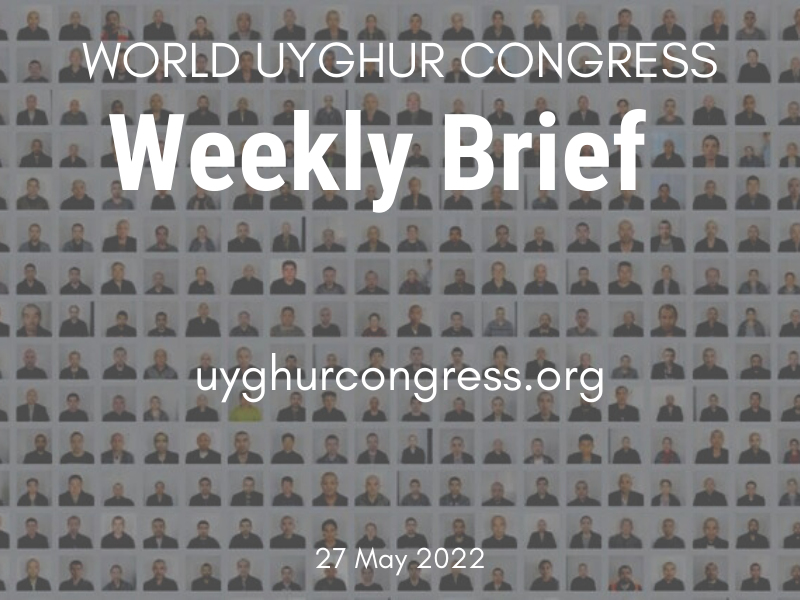Weekly Brief, 27 May 2022


NEWS
Xinjiang Police Files Provide Groundbreaking New Evidence for the Uyghur Genocide
On May 24th, a cache of data hacked from police computers in East Turkistan was published after being verified by international media outlets. The so-called Xinjiang Police Files contain unprecedented evidence from internal police networks in East Turkistan.
They contain over 5000 police portraits of Uyghurs taken in 2018 at police stations and detention centres in Konasheher county, CCP speeches, images of police operations, security directives containing shoot-to-kill orders, and other documents, proving the prison-like nature of the internment camps and highlighting top Chinese leaders’ direct involvement in the mass internment campaign.
Xinjiang Police Files Prompt Responses and Policy Change vis-à-vis China
In the aftermath of the publication of the Xinjiang Police Files, there have been numerous immediate reactions, expressing concern over the Uyghur genocide and calling for action to be taken. Most notably, German Foreign Minister Annalena Baerbock addressed the “shocking reports” with her Chinese counterpart, Wang Yi, and called for “transparent clarification”, and UK Foreign Secretary Liz Truss stated to “remain committed to hold China to account”. Furthermore, German Economy Minister Robert Habeck announced Germany “is changing the way it deals with China and will give higher priority for human rights issues”, while U.S. Secretary of State, Anthony Blinken, announced America’s new China policy, which is centred around “invest, align, compete”, with human rights and the Uyghur genocide as a care focus area. Economy Minister Robert Habeck.
UN High Commissioner Visits China and East Turkistan
This week, the UN High Commissioner for Human Rights, Michelle Bachelet, conducted her long-awaited visit to China. Despite serious concerns raised by human rights organisations, warning of the Chinese government’s intent to use the visit to whitewash the Uyghur genocide, her office did not release the overdue report on human rights in East Turkistan, nor did it seem to secure unfettered access for a credible independent assessment. One concrete example proved to be the different readouts of a call between the High Commissioner and Chinese President Xi Jinping. Whereas the Chinese readout claimed the High Commissioner said she “admire[s] China’s efforts in [..]. protecting human rights, and realising economic and social development,” after which the UN human rights office was forced to issue a statement to clarify Bachelet’s remarks. Completing her visit today, the High Commissioner is expected to announce the conclusions of her visit tomorrow during a press conference.
WUC Organises High-Level Uyghur Summit in Munich, Germany
From 26-28 May, the WUC, in collaboration with 21 other Uyghur organisations, is organising a “Uyghur Summit” in Munich, Germany, bringing together over 200 prominent activists, legal and academic experts, policymakers, as well as East Turkistan diaspora leaders from 70 organisations and camp survivors. The three-day Summit will feature a series of panels and discussions focused on how different groups from various backgrounds can coordinate their work on the Uyghur genocide in East Turkistan. On the morning of May 26th, the Summit began with an opening session that will be joined by parliament members, NGO representatives, and legal experts, followed by a panel discussion on “Genocide Prevention and the Responsibility to Protect”. From the afternoon of the 26th until the 28th of May, Uyghur groups discuss about the outcomes of the international conference, and expand on the questions and best practices identified.

